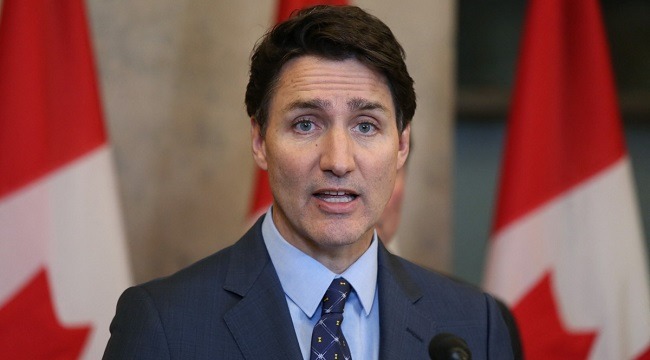Canada’s Prime Minister Justin Trudeau announced on Monday that he will resign as soon as the ruling Liberal Party selects a new leader. The decision comes amid months of declining poll numbers and growing internal party divisions.
“I intend to resign as party leader, as prime minister, after the party selects its next leader,” Trudeau stated in Ottawa, following a prolonged political crisis during which key Liberal allies called for his departure. Trudeau has served as prime minister since 2015.
While a timeline for his departure remains unclear, Trudeau assured that the Liberal leadership race will be “a robust, nationwide competitive process.”
In the interim, Trudeau will continue to lead Canada, including managing the country’s response to the incoming U.S. administration under President Donald Trump. This includes addressing Trump’s threat to impose a 25% tariff on Canadian imports, a move that could significantly impact Canada’s economy. Trudeau has pledged to respond with retaliatory measures.
Internal Struggles within the Liberal Party
Trudeau’s decision follows a turbulent period marked by waning party support and the resignation of Deputy Prime Minister and Finance Minister Chrystia Freeland in December. In a pointed resignation letter, Freeland criticized Trudeau’s focus on voter-pleasing tactics, such as a costly Christmas tax holiday, instead of preparing Canada’s finances for Trump’s potential tariffs.
Freeland is considered a frontrunner to replace Trudeau, along with Mark Carney, the former Governor of the Bank of England and Bank of Canada.
Political analyst Lori Turnbull from Dalhousie University noted the urgency of the situation, stating, “Traditionally, a Liberal leadership race takes four to six months, but this time they need to act faster. Without a new leader before the next election, the party risks losing entirely.”
Looming Political Challenges
Trudeau’s Liberal Party is significantly trailing the opposition Conservatives in recent polls. The minority government narrowly survived three no-confidence votes last year, relying on an agreement with the left-wing New Democratic Party (NDP). However, the NDP recently announced plans to withdraw their support, potentially forcing an early election.
To mitigate this, Trudeau has obtained permission from Canada’s governor general to suspend parliamentary business until March 24. This move could provide the Liberals with time to elect a new leader while limiting the opposition’s ability to force a confidence vote.
As the leadership race unfolds, Trudeau’s decision marks the end of an era and ushers in a period of uncertainty for Canada’s ruling party.









